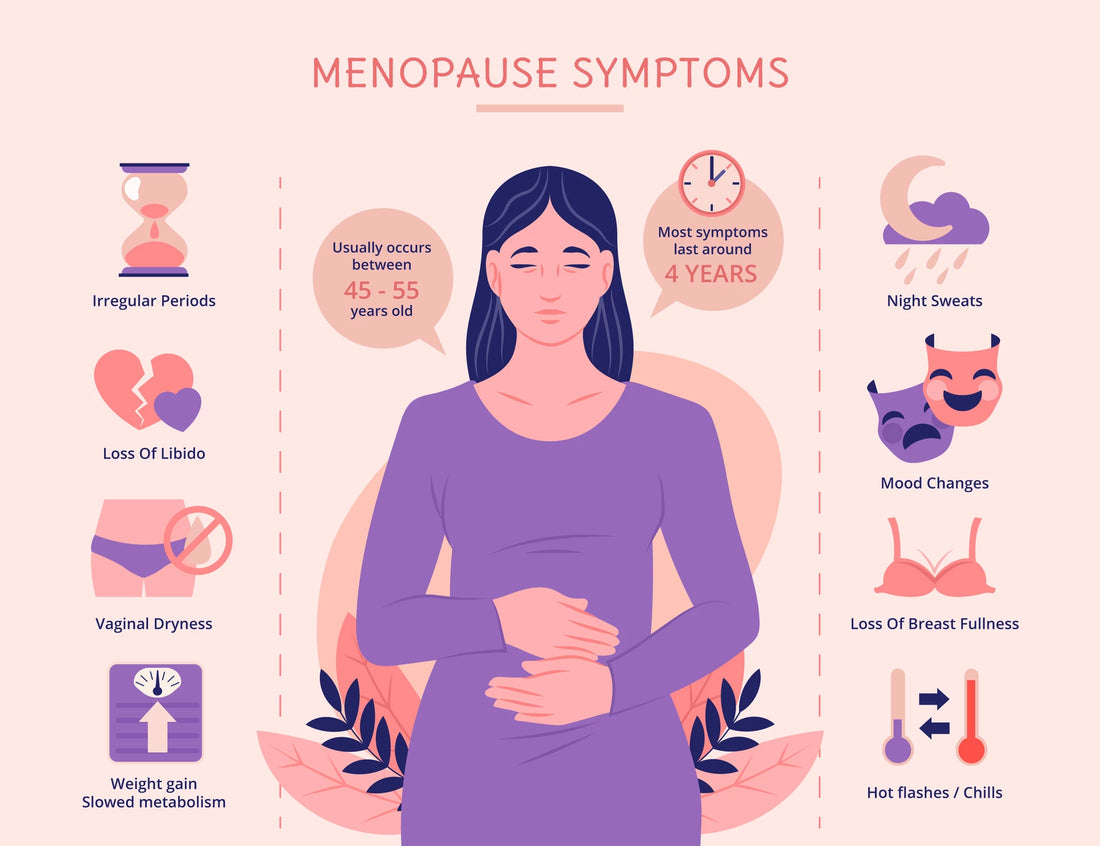
Symptoms of the onset of menopause
Menopause means, cessation of menstruation. Where "Meno" refers to "menstruation" and "pause" means "cessation".
The medical definition of menopause is when one year has passed since your last menstrual period. During this process, your periods will become more spaced out and eventually stop. It usually begins at 45-55 years of age and the transition can last several years.
The two stages of menopause
To reach menopause, one must first go through the following stage:
- Perimenopause: The body's hormone levels begin to fluctuate and decrease. Menstruation becomes irregular and eventually stops altogether.
After the complete cessation of menstruation, for one year we are in the presence of menopause and move on to the next stage which would be:
- Postmenopause: The remainder of a woman's life after a year or more has passed since her last menstrual period.

How is menopause diagnosed and what symptoms are experienced?
Menopause is considered a very personal experience; that is, it is individualized, because while some women have mild symptoms, others experience unpleasant and persistent effects, both physical and psychological.
Hence the importance of knowing some of the most common symptoms that may occur.
This will allow you to understand the natural changes your body must undergo. In addition, the symptoms listed below will also help your doctor with the diagnosis of menopause. Some of them are:
- Estrogen decreases and can cause low moods, leading to depression, which can also lead to forgetfulness.
- A common symptom of menopause is increased bone resorption, that is, the removal of tissue and release of minerals from the bone into the blood. Muscle and joint pain may be felt.
- There is a loss of interest in sex. With the decrease of estrogen, sexual desire tends to decrease, but it is a passing symptom since after menopause it returns.
- The loss of estrogen tends to produce dryness in the vagina, that is, the vaginal wall is reduced and loses elasticity. This generates vaginal discomfort.

Let's continue with more symptoms!
- Many hormonal changes are experienced, thus generating lipid accumulation, and with it an increase in weight. Anxiety also plays an important role at this point.
- Sleep disturbances may be experienced, and with the decrease in dopamine, stress becomes present.
- Hot flashes are one of the main symptoms that occur during menopause, especially at night. They begin in specific parts of the body and will later be felt throughout the body.
- Your period will often be irregular, it will take longer and longer to come, but it will last longer and your menstrual flow will be heavier.
Don't overlook this!
The process of menopause can generate constant discomfort, one of which is irregular menstruation, mentioned above, which when they appear can bring abdominal pain, and heavy flow, among others, interrupting your daily activities.
The use of reusable pads and period panties on those days of your period will keep you comfortable and safe and will allow you to continue with your routine activities without any problem.
Become an eco woman, which will make your menstrual cycle total perfection. Say goodbye to the discomfort of those days and more if you are experiencing the process of menopause where the symptoms of discomfort are accentuated a little more.





